A Comprehensive Caring for Aging Parents Checklist
Retirement is a time filled with decisions and considerations that can profoundly impact you and your loved ones. Often associated with financial preparation, this time requires holistic planning that encompasses physical health, emotional well-being, family dynamics, and legacy planning. This post is designed to help guide you and your family through the complexities of retirement planning, offering practical insights and strategies to navigate this pivotal phase of life with care and foresight.
Knowing exactly where to start can be complicated and sometimes even overwhelming as you begin considering how you will care for your parents as they age. After all, there are many options, from where they will live to how their daily living requirements will be met.
Start With a Conversation
As with any significant life decision, you should start with a conversation. To fully understand your parents’ wishes, sit down and talk about their hopes, dreams, and plans for their future. Doing this as soon as possible will help you clarify what your parents expect as they age. While this conversation may sometimes be difficult and uncomfortable, it is necessary. As you discuss their retirement plans, respecting and empathizing with their wishes is essential. Take the time to listen to your parents and, most importantly, remind them that they are heard.
Take Action: Your Caring for Aging Parents Checklist
To help you stay organized, we have compiled a comprehensive checklist of the most important aspects of caring for aging parents, ensuring a thorough and proactive approach to their well-being and support.
1. Housing and Living Arrangements
Of course, no caring for aging parents checklist is complete without deciding where they will spend their days in retirement. Luckily, a variety of housing options are available for older adults. First, it is imperative to determine whether your parents will stay in their current home, move in with you or another loved one, or retire in an active adult community. These luxurious retirement communities offer various options, such as independent and assisted living, so there will surely be something to accommodate your parent’s needs and desires.
Related: Everything You Need to Know About a Continuing Care Retirement Community
- Evaluate housing options based on their preferences, health needs, and financial situation, such as aging in place, senior living communities, assisted living facilities, or nursing homes.
- When choosing a location, consider proximity to family members, healthcare providers, and essential services.
- Tour potential living arrangements to assess amenities, safety features, social activities, and overall comfort.
- Discuss and decide on a suitable living arrangement that meets their needs and enhances their quality of life while considering long-term care planning.
2. Home Safety and Accessibility
Once you have determined where your parent will be living, it is essential to ensure the home is safe and accessible. This involves thoroughly assessing the living space to identify potential hazards and implement necessary modifications. Here are some critical steps to make your parent’s home safer and more accommodating.
- Conduct a detailed home safety assessment focusing on fall prevention, fire safety, and overall accessibility.
- Install grab bars in bathrooms, handrails on staircases, and adequate lighting throughout the house.
- Remove any tripping hazards, such as loose rugs and clutter.
- Consider installing a medical alert system for emergencies.
- Explore options for home modifications like wheelchair ramps or bathroom adaptations.
Related: Learn How to Design a Safe and Accessible Home
3. Daily Living Assistance
Once you’ve had the initial conversation, one of the most important aspects of caring for aging parents is meeting their daily needs. These requirements can be divided into two categories: activities of daily living and instrumental activities of daily living. Let’s take a closer look at each below.
Activities of Daily Living
Otherwise known as ADLs, activities of daily living are the essentials needed for someone to function on a day-to-day basis. These activities include self-feeding, functional mobility, dressing, personal hygiene, etc. To help your aging parents, you will need to meet their ADLs. First, discover where an elderly parent needs support and then assess the possible solutions to get them the assistance they need.
Instrumental Activities of Daily Living
Instrumental activities of daily living, or IADLs, are just as important to consider when caring for aging parents. Although not necessarily fundamental, IADLs refer to the activities you need to function independently, including cooking and preparing meals, cleaning the home, shopping or running errands, managing medications, and more. If your parents are having trouble performing any of these IADLs by themselves, this is a sign that it may be time to explore aging care options.
- Assess their needs for assistance with activities of daily living (ADLs) such as bathing, dressing, grooming, and meal preparation.
- To ensure consistent support, create a care plan with designated caregivers or home care providers.
- Monitor their nutrition and hydration, addressing any dietary restrictions or special needs.
- Consider assistive devices or technology solutions to enhance independence, such as automatic pill dispensers or adaptive kitchen tools.
- If they have pets, decide how to care for their pets or what to do with them if your parents need to move.
4. Healthcare and Medical Needs
In some cases, it may be necessary for you to take a more proactive role in managing the medical needs of your parents, particularly when they require ongoing care or assistance with health conditions. This increased involvement can significantly impact their well-being and quality of life.
- If needed, schedule regular checkups with their primary care physician and specialists, including geriatricians.
- Maintain a comprehensive list of medications, dosages, and schedules. Consider using pill organizers or medication management apps.
- Stay informed about their health conditions and any changes in symptoms or medications.
- Ensure they can access necessary medical equipment such as hearing aids, glasses, or mobility aids.
- Educate yourself about their medical history, allergies, and preferred treatments
5. Memory and Cognitive Health
- Monitor any memory, cognition, and behavior changes, seeking professional evaluation.
- Engage in cognitive stimulation activities such as puzzles, games, reading, or music therapy.
- Create a structured daily routine to support memory recall and organization.
- Seek guidance from memory care specialists or support groups for Alzheimer’s or dementia care strategies.
6. Financial and Legal Planning
Once you have established how to meet your parents’ daily living needs, it is time to discuss their finances and savings. Specifically, you will want to look at various factors, such as their income, how much they spend each month, what they owe, and if they have 401(k) or IRA retirement accounts. This information will give you a better understanding of their finances, allowing you to assist them better in planning for retirement.
- Review and update legal documents regularly, including wills, trusts, powers of attorney, and advance directives.
- Consult a financial advisor to manage their finances, investments, and retirement plans.
- Research and discuss long-term care options and potential costs.
- Keep important documents organized and accessible, including insurance policies, bank accounts, and property deeds.
- Consider becoming an authorized user on your parents’ accounts so you can have access if needed.
In addition to investigating your parents’ finances, taking care of other details is equally important. Now is the time to discuss their healthcare, insurance, and wills.
You should also gather essential records or documents, such as their birth certificate, passport, bank account information, and property ownership records. While this may seem tedious, making these arrangements now will set you and your parents up for success.
To help you get started, here are some questions to consider:
- Does your parent have a will? Is it up-to-date?
- Has your parent prepared letters of instruction?
- Have you established a power of attorney (POA) for healthcare and finances?
- Does your parent have insurance?
- Is your parent’s living situation safe and comfortable?
- Is your parent able to function independently, or do they require assistance?
7. Emotional and Social Support
- Maintain open and honest communication about their mental health, including any feelings, concerns, and preferences they may have.
- Encourage social interactions by organizing family gatherings, outings, or virtual events.
- Provide opportunities for meaningful activities such as hobbies, volunteering, or cultural events.
- Stay empathetic and attentive to their emotional well-being, offering reassurance and validation.
8. Transportation and Mobility
- Arrange reliable transportation for medical appointments, grocery shopping, and social engagements.
- Explore community resources for senior transportation services or ridesharing programs.
- Maintain their mobility aids in good condition and provide training if they learn to use new devices.
- Plan for accessible travel if they need to visit family or go out.
9. Emergency Preparedness
- Develop a comprehensive emergency plan with contact information for family members, healthcare providers, and emergency services.
- Keep emergency supplies stocked, including medications, first aid kits, water, and nonperishable food.
- Practice emergency drills and review evacuation procedures for different scenarios.
- Consider enrolling in medical alert programs or wearable devices for added safety.
10. Regular Communication and Updates
- Establish regular communication channels with healthcare providers, caregivers, and family members to share updates and coordinate care.
- Keep a journal or log of medical appointments, treatments, and changes in their health status.
- Use technology, such as video calls or messaging apps, for remote check-ins and consultations.
- Attend family meetings or support groups to discuss caregiving responsibilities and share insights with others.
Our Caring for Aging Parents Checklist can be a valuable resource as you start looking toward the future and helping your parents plan for retirement. To get a copy of this checklist, simply click the button below.
Remember, this Caring for Aging Parents Checklist is an ongoing process that constantly needs reevaluation. While your parents may be able to live independently now, they may require more assistance and care as time passes.
Provide Care for Aging Parents at Seafields
With both independent and assisted living options, Seafields can adapt and manage their evolving healthcare needs in one convenient setting—giving you peace of mind that your parent’s current and future needs will be taken care of.
To learn more about how Seafields can care for your aging parents throughout every stage of their retirement, click the button below to contact a member of our team.





